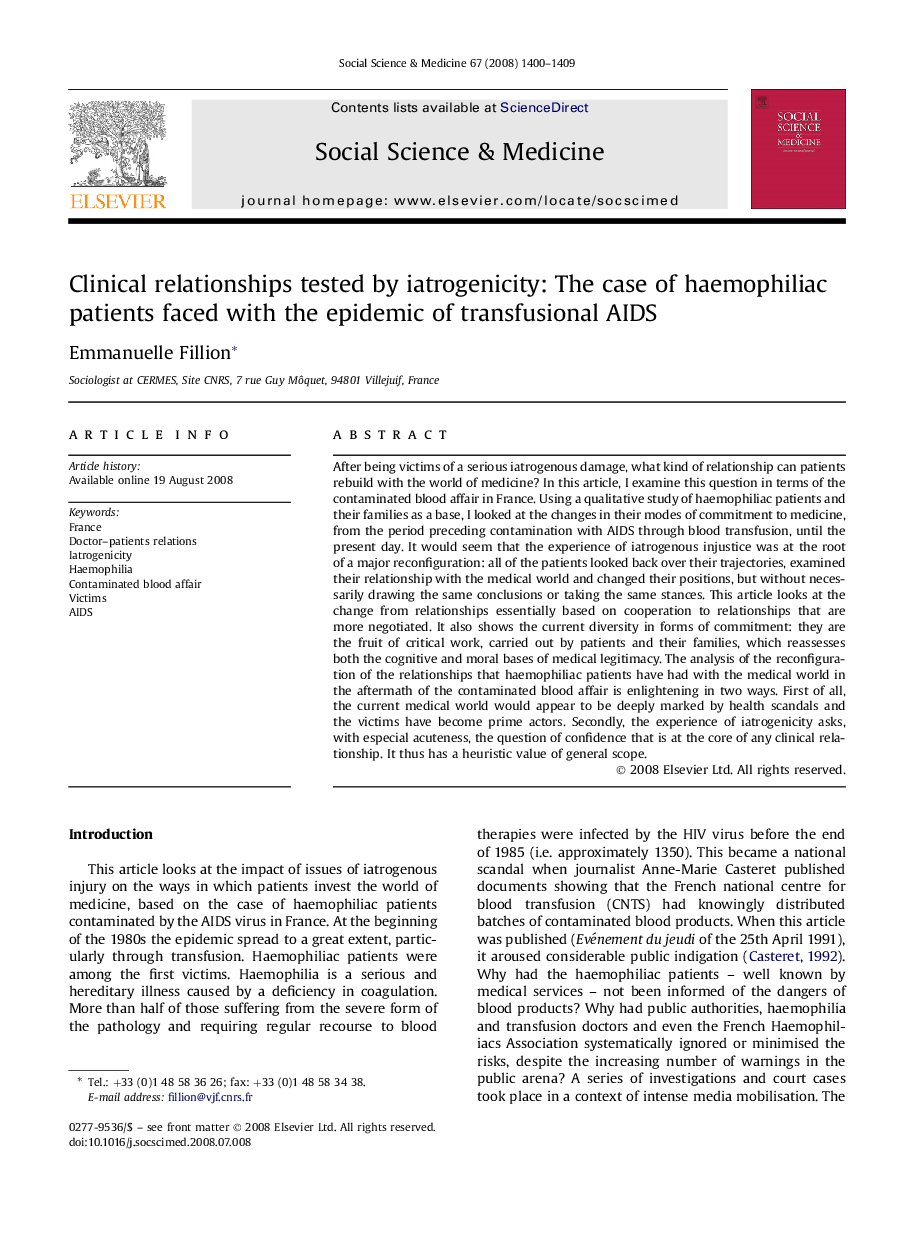| Article ID | Journal | Published Year | Pages | File Type |
|---|---|---|---|---|
| 954066 | Social Science & Medicine | 2008 | 10 Pages |
After being victims of a serious iatrogenous damage, what kind of relationship can patients rebuild with the world of medicine? In this article, I examine this question in terms of the contaminated blood affair in France. Using a qualitative study of haemophiliac patients and their families as a base, I looked at the changes in their modes of commitment to medicine, from the period preceding contamination with AIDS through blood transfusion, until the present day. It would seem that the experience of iatrogenous injustice was at the root of a major reconfiguration: all of the patients looked back over their trajectories, examined their relationship with the medical world and changed their positions, but without necessarily drawing the same conclusions or taking the same stances. This article looks at the change from relationships essentially based on cooperation to relationships that are more negotiated. It also shows the current diversity in forms of commitment: they are the fruit of critical work, carried out by patients and their families, which reassesses both the cognitive and moral bases of medical legitimacy. The analysis of the reconfiguration of the relationships that haemophiliac patients have had with the medical world in the aftermath of the contaminated blood affair is enlightening in two ways. First of all, the current medical world would appear to be deeply marked by health scandals and the victims have become prime actors. Secondly, the experience of iatrogenicity asks, with especial acuteness, the question of confidence that is at the core of any clinical relationship. It thus has a heuristic value of general scope.
